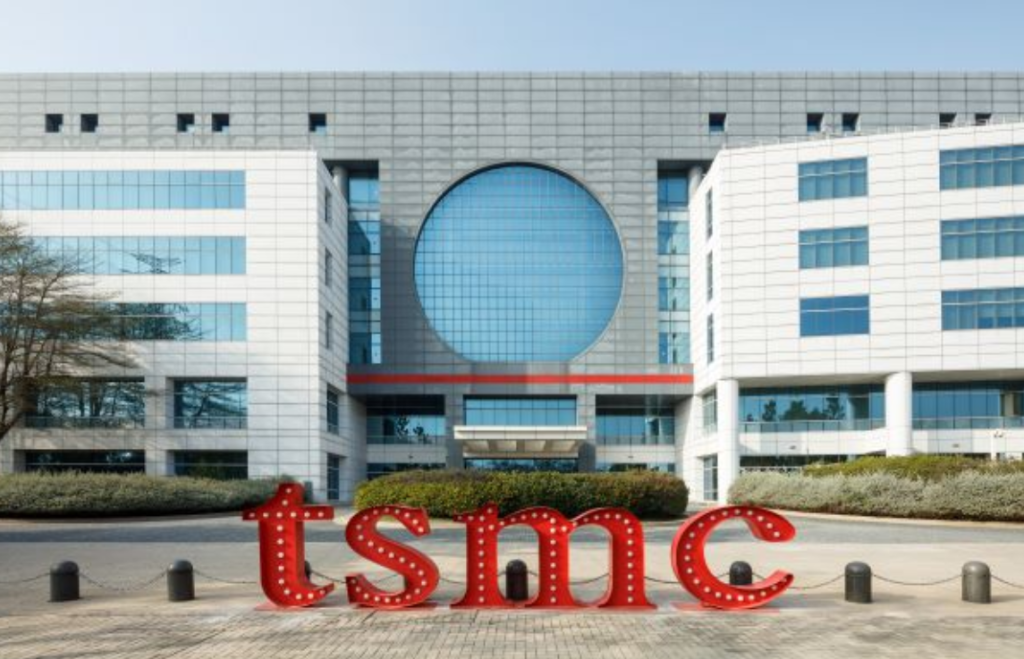TSMC, the world’s leading semiconductor manufacturer, has announced that its advanced packaging capacity is fully booked for the next two years. This development comes as Nvidia, AMD, and Guanghuida secure TSMC’s cutting-edge packaging technologies for their high-performance computing (HPC) ventures.
The focus on high-performance computing stems from the crucial role it plays in powering artificial intelligence (AI) tasks. TSMC anticipates a significant surge in revenue from AI processors, with projections indicating a doubling this year alone. Over the next five years, the compound annual growth rate for AI chips is expected to hit 50%, with AI processors projected to contribute over 20% of TSMC’s revenue by 2028.

source: tsmc.com
Both Nvidia and AMD have secured TSMC’s Chip-on-Wafer-on-Substrate (CoWoS) and System-on-Integrated-Chip (SoIC) advanced packaging capacities for their products. Nvidia’s flagship H100 chip, built on TSMC’s 4nm process, utilizes CoWoS packaging. Meanwhile, AMD’s MI300 series, manufactured using TSMC’s 5nm and 6nm processes, leverages SoIC for CPU and GPU integration before employing CoWoS with High Bandwidth Memory (HBM).
Guanghuida, a rising player in the AI chip market, has also booked TSMC’s packaging capacity. Their H100 chips, powered by TSMC’s 4nm process and CoWoS packaging, boast SK Hynix’s HBM for enhanced performance. Moreover, Guanghuida’s latest Blackwell architecture AI chip, based on TSMC’s advanced 4nm process, features upgraded HBM3e memory, doubling computing power compared to its predecessors.
The soaring demand for AI chips is fueled by global cloud service giants such as Amazon AWS, Microsoft, Google, and Meta, all vying for superiority in the AI server domain. With shortages from major manufacturers like Nvidia, AMD, and Guanghuida, these cloud behemoths are turning to TSMC to fulfill their orders, contributing to the chipmaker’s optimistic revenue projections.
To meet this escalating demand, TSMC is ramping up its production capacity for advanced packaging. By the end of this year, CoWoS monthly production is set to triple, reaching 45,000 to 50,000 wafers, while SoIC capacity is expected to double, reaching 5,000 to 6,000 wafers. By 2025, SoIC monthly production is projected to double again, hitting 10,000 wafers.
TSMC’s fully booked advanced packaging capacity signifies the accelerating pace of innovation in AI-driven computing, with key players strategically positioning themselves to capitalize on this potential market.
The focus on high-performance computing stems from the crucial role it plays in powering artificial intelligence (AI) tasks. TSMC anticipates a significant surge in revenue from AI processors, with projections indicating a doubling this year alone. Over the next five years, the compound annual growth rate for AI chips is expected to hit 50%, with AI processors projected to contribute over 20% of TSMC’s revenue by 2028.

source: tsmc.com
Both Nvidia and AMD have secured TSMC’s Chip-on-Wafer-on-Substrate (CoWoS) and System-on-Integrated-Chip (SoIC) advanced packaging capacities for their products. Nvidia’s flagship H100 chip, built on TSMC’s 4nm process, utilizes CoWoS packaging. Meanwhile, AMD’s MI300 series, manufactured using TSMC’s 5nm and 6nm processes, leverages SoIC for CPU and GPU integration before employing CoWoS with High Bandwidth Memory (HBM).
Guanghuida, a rising player in the AI chip market, has also booked TSMC’s packaging capacity. Their H100 chips, powered by TSMC’s 4nm process and CoWoS packaging, boast SK Hynix’s HBM for enhanced performance. Moreover, Guanghuida’s latest Blackwell architecture AI chip, based on TSMC’s advanced 4nm process, features upgraded HBM3e memory, doubling computing power compared to its predecessors.
The soaring demand for AI chips is fueled by global cloud service giants such as Amazon AWS, Microsoft, Google, and Meta, all vying for superiority in the AI server domain. With shortages from major manufacturers like Nvidia, AMD, and Guanghuida, these cloud behemoths are turning to TSMC to fulfill their orders, contributing to the chipmaker’s optimistic revenue projections.
To meet this escalating demand, TSMC is ramping up its production capacity for advanced packaging. By the end of this year, CoWoS monthly production is set to triple, reaching 45,000 to 50,000 wafers, while SoIC capacity is expected to double, reaching 5,000 to 6,000 wafers. By 2025, SoIC monthly production is projected to double again, hitting 10,000 wafers.
TSMC’s fully booked advanced packaging capacity signifies the accelerating pace of innovation in AI-driven computing, with key players strategically positioning themselves to capitalize on this potential market.

